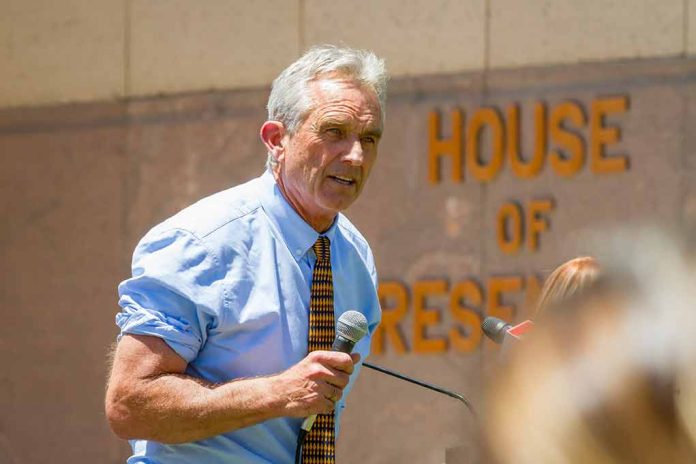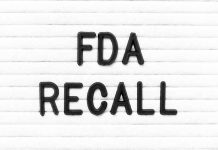
Robert F. Kennedy Jr. is poised to lead a groundbreaking federal initiative to reassess childhood vaccination schedules and prioritize children’s health.
At a Glance
- Kennedy is appointed to a strategic government role focusing on vaccine safety and children’s health.
- The initiative aims to examine agrichemicals, food chemicals, and vaccine formulations.
- The goal is to bring transparency and accountability to regulatory entities.
- There are potential changes to vaccine standards and childhood health priorities.
A New Era in Public Health Advocacy
Robert F. Kennedy Jr. is set to assume an unprecedented role within the federal government, spearheading efforts to advocate for children’s health and counter what he perceives as corporate propaganda. This appointment comes as part of President-elect Donald Trump’s vision for his second administration, signaling a potential shift in public health policy.
Kennedy’s role will encompass a wide range of issues, including the scrutiny of agrichemicals, food additives, and vaccine safety. His appointment has sparked both anticipation and concern among various stakeholders in the public health sector.
Focusing on Transparency and Action
At the heart of Kennedy’s mission is a commitment to transparency and decisive action. He plans to address key issues such as the use of glyphosate, neonicotinoid pesticides, atrazine, and various chemical compounds in food and water supplies. A significant part of his agenda involves a thorough examination of the childhood vaccine schedule.
Kennedy’s approach includes accessing and analyzing the CDC’s vaccine safety data to verify the agency’s safety claims. He intends to recommend comprehensive changes to the vaccine schedule, aiming to protect future generations from chronic diseases.
Controversial Stance on Vaccines
While Kennedy insists he is not anti-vaccine, his views have been a source of controversy. He advocates for informed choice regarding vaccines and emphasizes the need for transparency in scientific safety studies and efficacy data.
“I am for vaccines. I have been tracking mercury in fish for 30 years and nobody has called me antifish. I am pro-vaccine. I had all my kids vaccinated. I think vaccines save lives,” says Kennedy in an interview.
However, Kennedy has also expressed skepticism about the fast-tracked Covid vaccines and has been critical of pharmaceutical companies. His stance has raised concerns among public health experts about potential increases in vaccine hesitancy.
Reforming Regulatory Agencies
A key aspect of Kennedy’s agenda is the reform of regulatory agencies such as the FDA and CDC. He aims to eliminate what he perceives as corruption within these organizations and address chronic diseases more effectively.
“FDA’s war on public health is about to end,” Kennedy wrote on social media.
This approach could lead to significant changes in how these agencies operate, potentially influencing vaccine policy and redirecting funding towards research aligned with Kennedy’s views. While supporters see this as a necessary step towards greater accountability, critics worry about the potential impact on established public health practices.
Looking Ahead
As Robert F. Kennedy Jr. prepares to take on this pivotal role, the future of public health policy in America stands at a crossroads. His appointment signals a potential shift towards alternative perspectives in healthcare and preventative measures. While his supporters view this as a necessary step towards greater transparency and accountability, others in the scientific community express concern about the potential implications for established public health practices.
The coming years will likely see intense debate and scrutiny as Kennedy’s initiatives unfold, potentially reshaping the landscape of children’s health and vaccine policy in the United States.








